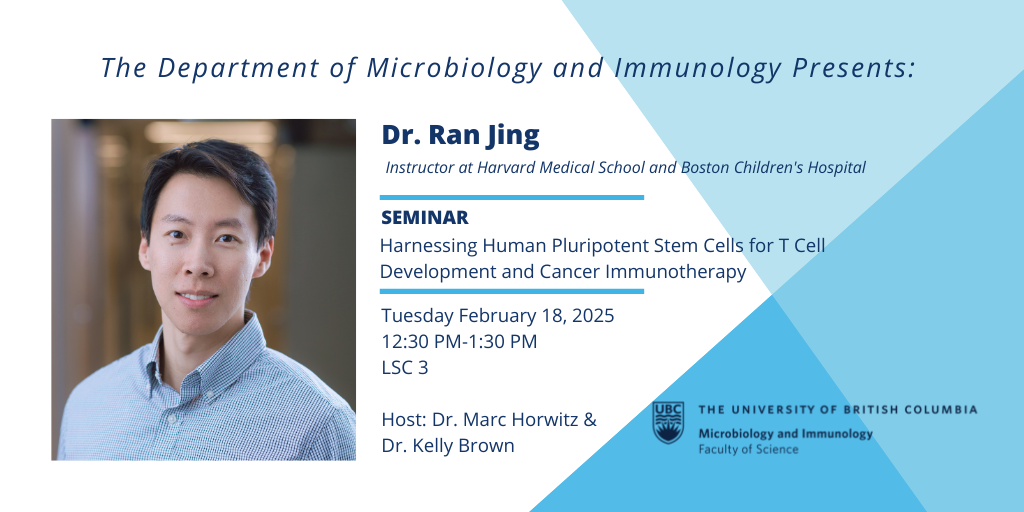
Seminar: Harnessing Human Pluripotent Stem Cells for T Cell Development and Cancer Immunotherapy
Abstract: Dr. Jing's research leverages human pluripotent stem cells (iPSCs) to study lymphoid development and create stem cell-based immune cell therapies. His previous work demonstrated that EZH1 repression enhances lymphoid potential and generates developmentally mature T cells resembling peripheral blood αβ T cells (Cell Stem Cell, 2022). A small molecule screen further revealed that G9a/GLP inhibition promotes mature T cell generation, with epigenetically reprogrammed iPSC-CAR-T cells displaying enhanced antitumor activity and persistence (Cell Stem Cell, 2024). These findings uncover key regulators of T cell lineage choice and advance the development of iPSC-based adoptive T cell immunotherapies.
LSC 3 (Life Sciences Institute - 2350 Health Sciences Mall) MBIM itsupport@microbiology.ubc.ca America/Vancouver publicSeminar: Harnessing Human Pluripotent Stem Cells for T Cell Development and Cancer Immunotherapy
Abstract: Dr. Jing's research leverages human pluripotent stem cells (iPSCs) to study lymphoid development and create stem cell-based immune cell therapies. His previous work demonstrated that EZH1 repression enhances lymphoid potential and generates developmentally mature T cells resembling peripheral blood αβ T cells (Cell Stem Cell, 2022). A small molecule screen further revealed that G9a/GLP inhibition promotes mature T cell generation, with epigenetically reprogrammed iPSC-CAR-T cells displaying enhanced antitumor activity and persistence (Cell Stem Cell, 2024). These findings uncover key regulators of T cell lineage choice and advance the development of iPSC-based adoptive T cell immunotherapies.

